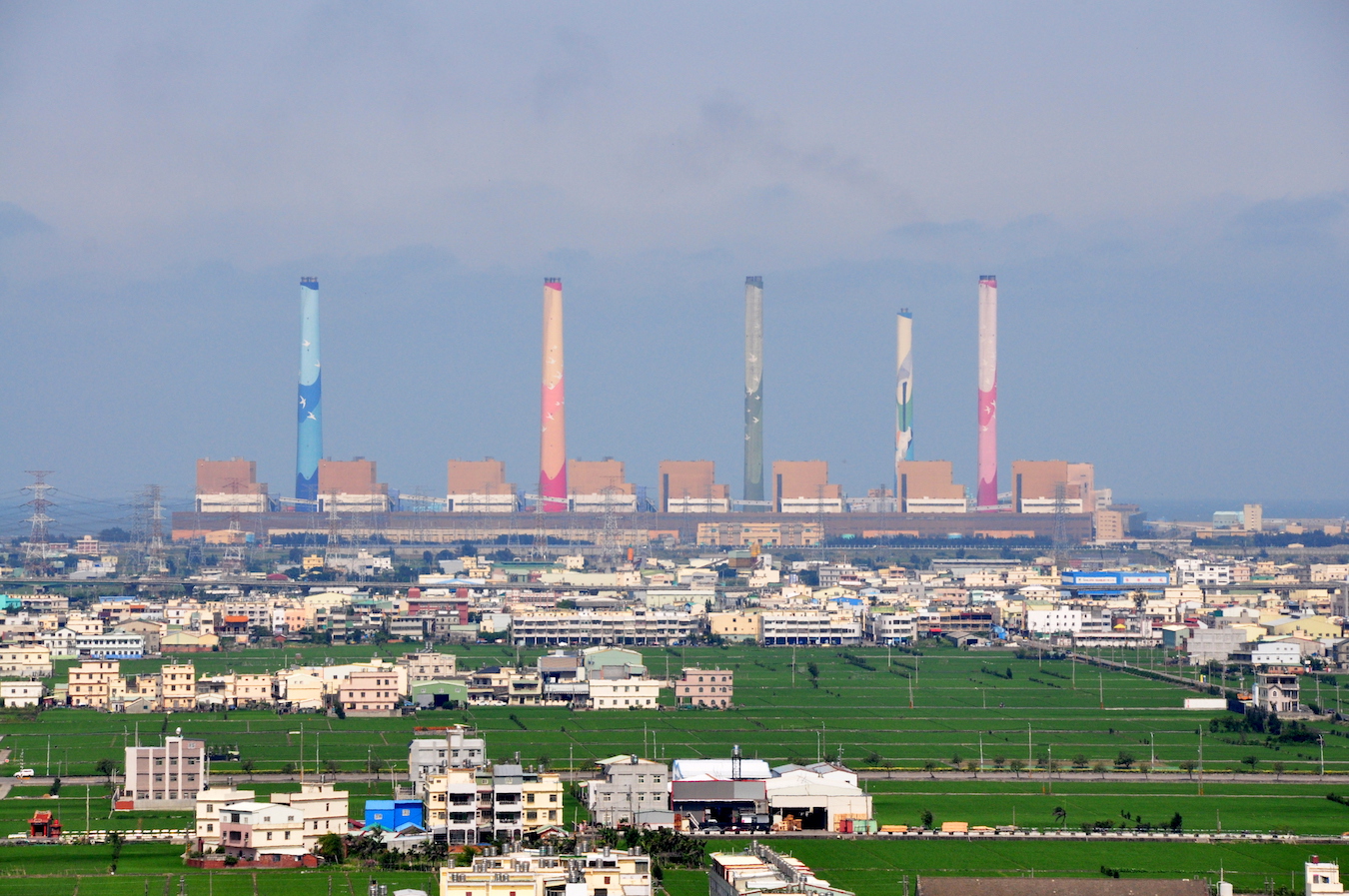by Brian Hioe
語言:
English
Photo Credit: Fcuk1203/WikiCommons/CC BY-SA 3.0
THE TAICHUNG CITY government has made moves to rein in air pollution, with new regulations targeting steel mills having been submitted to the Environmental Protection Agency for review by Taichung’s Environmental Protection Bureau. The Taichung city government touts such restrictions as the strictest in the country and hopes that they will take effect before the end of this year.
Steel mills are the second-largest contributor to air pollution in Taichung and this marks the third time there have been efforts to tighten measures regulating steel mills in Taichung. New regulations will limit dioxins to 0.2 nanograms per cubic meter at zero degrees celsius, with previous regulations allowing 0.4 nanograms per cubic meter.
This will reportedly take place in concert with adjustments to environmental regulatory measures for the energy industry, as the fourth attempt by the Taichung city government to do so. As such, the Taichung city government will likely also roll out measures for thermal power plants, another major contributor to air pollution in central Taiwan.
More generally, the Taichung city government has touted its proposed legal changes as setting new precedents. This includes the fact that multiple measurements will be carried out for its air quality assessment, rather than one-off measurements. The Taichung city government has stated that this is part of broader efforts to provide for equal treatment of factories, in that the new requirements will first target larger factories, before moving to smaller ones. Taichung’s Environmental Protection Bureau asserts that it hopes for factories to modernize their equipment with more stringent regulations.
Issues with air pollution have worsened in central and southern Taiwan in past years. Current Taichung mayor Lu Shiow-yen of the KMT came to office promising to improve air quality in Taichung but was later criticized for failing to live up to campaign promises. Notably, some of the industrial plants that affect air quality in Taichung are sometimes located outside of city limits, making it difficult to regulate them.
Apart from continual pollution, Taiwanese steel mills also cause industrial accidents that result in pollution. Or Taiwanese steel mills may cause pollution through discharges of industrial products. Besides harming the environment, this harms the health of local residents, causing cancer and other diseases. Among the most infamous industrial disasters caused by Taiwanese steel mills are the mass fish die-offs in Vietnam in 2016 due to wastewater discharges from a Formosa Plastics-owned steel mill. Formosa Plastics initially denied responsibility for the incident and, though it was fined by the Vietnamese government, the Vietnamese government largely went out of its way to protect Formosa Plastics’ investment in the Vietnamese economy.
Such problems often return to lack of environmental regulation during Taiwan’s economic growth. Unsurprisingly, issues regarding pollution are worse in heavily industrialized areas in central and southern Taiwan.
Efforts to regulate pollution by factories prove difficult, then, when factories have been polluting for decades. Likewise, there are widespread issues with illegal factory construction in many parts of Taiwan. It proves difficult to regulate such factories when they are often located in remote areas, and there are challenges in documenting their existence to government officials. Nevertheless, pollution from such factories affects the lives of residents in the area, who then face an uphill battle trying to rid the local area of factories.
To this extent, lax safety measures in factories contribute to workplace accidents that are fatal for workers. The casualties are often migrant workers, seeing as migrant workers take on the work that Taiwanese factories find demeaning, dangerous, and dirty. Accidents take place in the factory, as well as due to improper chemical storage. Some fatalities in past years were due to fires breaking out, burning down migrant worker dormitories located adjacent to factories. Despite calls to regulate air pollution, there have been fewer demands from the public to improve workplace safety in factories, probably due to the fact that fewer Taiwanese work such jobs.
It is to be seen if new regulations by the Taichung city government prove effective in curbing air pollution. If Taichung is able to take action to improve its issues regarding air pollution, this may pave the path for other cities adopting similar measures. At the same time, such pledges to take action to improve air pollution sometimes take place shortly before elections, simply because politicians are seeking re-election or hope to benefit their political party.


